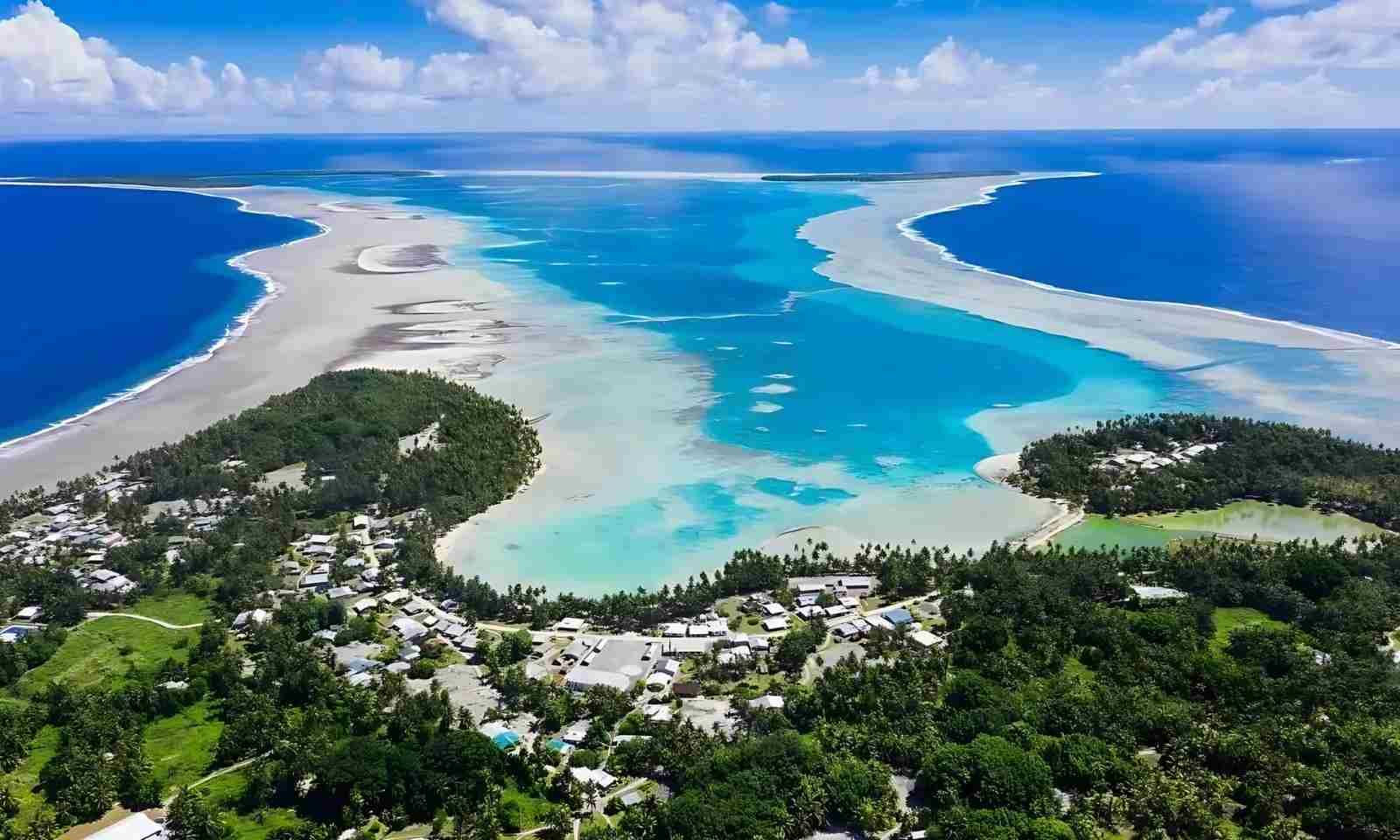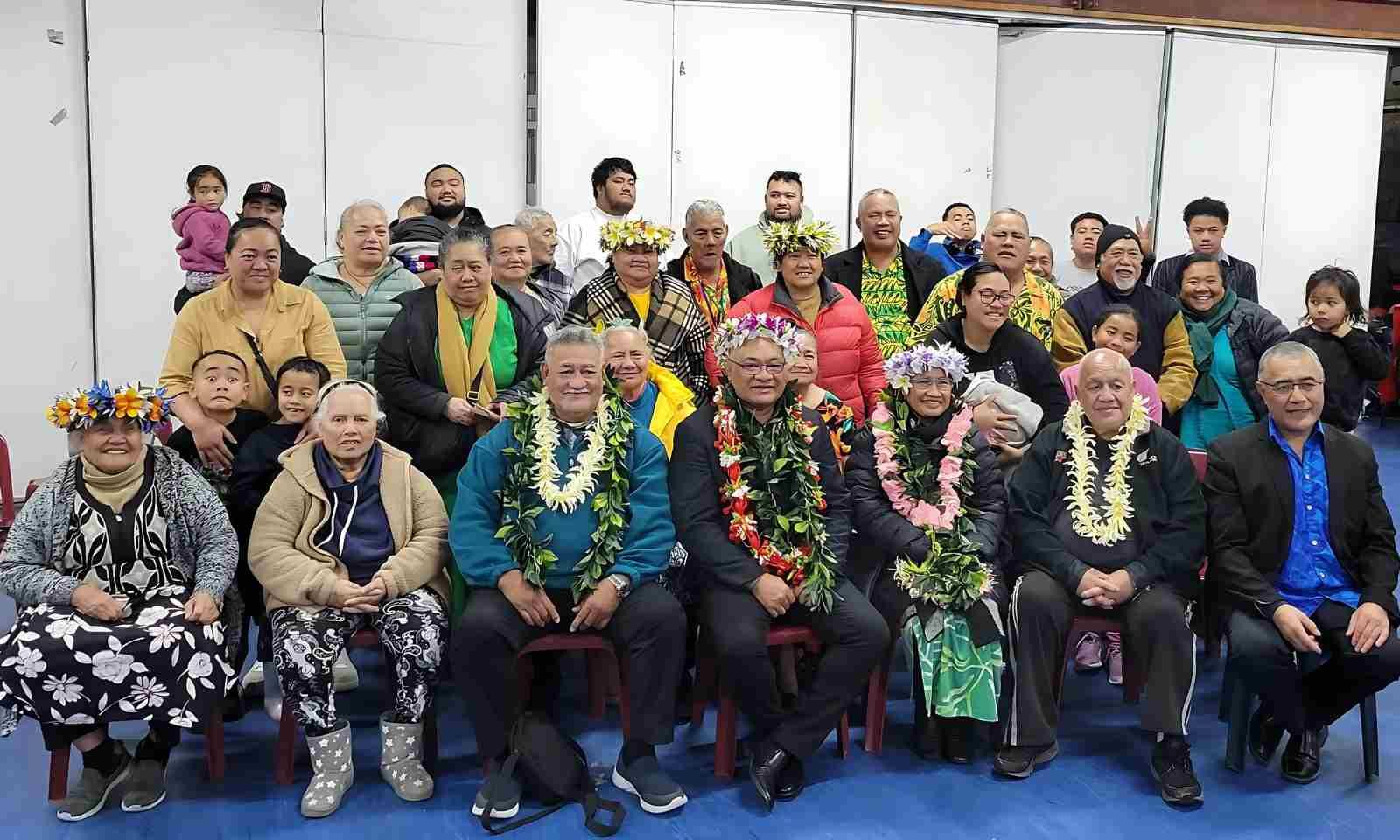

Cook Islanders living in Aotearoa hope to continue to strengthen the emotional and cultural ties between the diaspora and their ancestral homeland.
Photo/supplied
Empowering to engage with the homeland
Cook Islanders in Aotearoa stay connected to their roots through various ways, one is by engaging in homecoming trips.


‘Words have power’: Pacific tolerance for on-air slurs hits record low



Niue PM calls for Realm leaders to discuss constitutional ties

‘Words have power’: Pacific tolerance for on-air slurs hits record low


If done right, migration has the potential to be a force for prosperity and greater opportunities for all, the experts say.
Well-managed migration can, and does, drive positive economic, social, and cultural outcomes.

Pukapuka is the northenmost atoll in the Cook Islands and is located some 3800km from Aotearoa New Zealand. Photo/Tourism Cook Islands
Cook Islanders residing overseas say while there are endless opportunities for migrating from their homeland, the need to stay connected to the Pa Enua remains as important as ever.
Pukapuka Island Community leader in New Zealand, Nuku Rapena, has been instrumental in developing the enterprise for social services and employment training schemes for his people.
He says this includes health and housing initiatives for the Pukapuka diaspora in Aotearoa.
Watch Nuku Rapena's interview on PMN's 531pi during 'Epetoma o te reo Māori Kūki 'Āirani' Cook Islands Language Week in 2021.
He adds one of the main reasons people from the outer islands leave is they believe life abroad will provide more opportunities, and better health and education services, among other things.
But he says despite this, many Pukapukans are still struggling in Aotearoa with some living below the poverty line.
“The cost of living is 10 times more over here, despite all the opportunities you could say.
“I think the lives of people down in the islands are better off, even though the dollars we’re talking about may not be as high as it is in New Zealand.”
Rapena says he has helped get more than 80 Pukapukans from Aotearoa to visit their island home over the years.
The first trip he led had to travel through Sāmoa because Pukapuka is so far north, it is closer to Sāmoa than to the Cook Islands capital, Rarotonga, which is just over 3200km from New Zealand. Pukapuka is some 3800km north of Aotearoa.
“It is my intention that every Pukapukan residing overseas go to Pukapuka and touch base. Even if they go for one day and come back, that’s fine - they’ve reached Pukapuka,” Rapena says.
Tina Maro, of PMN Cook Islands, has lived in New Zealand most of her life. Born and raised in Aotearoa, Maro is of Pukapuka descent.
Her mother migrated from Pukapuka for “better opportunities”.

PMN Cook Islands' Tina Maro hails from the villages of Ngāke and Roto in Pukapuka. Photo/PMN News
“I wanted to go back to see the homeland, but it is just so hard to get there,” Maro said.
She says she keeps connected with her community through her work as a broadcaster, which includes speaking with the local community on air and other platforms for locals in Tāmaki Makaurau Auckland.
Maro says she has no problems with her homeland, only that it is the most northern island in the Cook Islands, and is simply too difficult to get there.
“It’s too expensive to go back home. That’s one thing I want our Cook Islands government to look at is better transportation for our people to get back to their islands,” she said.
Ben Ponia, Chief of Staff in the Prime Minister’s Office, says air transport improvements are underway for Manihiki Airport to become a hub for the northern Cook Islands.
He says this development will potentially reduce flight costs.
“This issue is indeed widespread and stems from various underlying causes. People are leaving for reasons such as health, employment, education, and economic opportunities.
“Additionally, some may feel left behind, especially when most of their families have already moved overseas.
“The reality of life in the Pa Enua is tough, with fewer people to share the workload and the same individuals taking on multiple responsibilities,” Ponia said.

Nuku Rapena, front far right, with members of the Pukapuka community in Aotearoa. Photo/supplied
There are two airports and seven coral airstrips in the Cook Islands, spread across the Southern and Northern groups.
The airstrips are very basic with unpaved coral surfaces that only small aircraft can operate on. Boat services to the outer islands are on a minimal schedule.
The Southern Group of islands is a 40-minute flight from Rarotonga and fares are comparable to regional airfares in New Zealand or Australia.
The Northern Group of islands is even more difficult and expensive to travel to.
“Small populations, little economic activity, and being located at long distances from Rarotonga make the Northern Group a very different proposition,” Ewan Smith, Managing Director at Air Rarotonga, said.
What is the government doing to help?
Inter-island shipping remains a high priority as freight costs significantly inflate the cost of living.
Prime Minister Mark Brown has been leading discussions with funding partners for a vessel.
Efforts to increase local production in agriculture and handicrafts are also underway to create jobs on the Pa Enua, tapping into the tourism sector.
The government says it has also adopted a Digital Transformation Strategy to bridge the digital divide and improve livelihoods in the Pa Enua by enhancing internet connectivity, benefiting entrepreneurs, and improving access to finance, health, education, and other services.